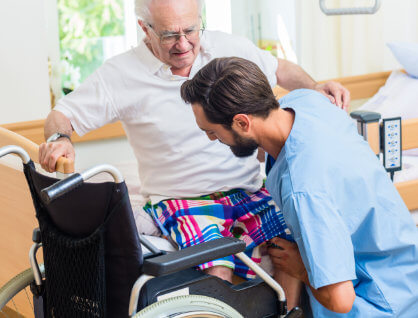The legal requirements for the services of a live in carer may come under The Health and Safety at Work Act 1974 (HSWA), depending on the type of care provided.
HSWA does not cover activities seen exclusively as ‘domestic services’ carried out in ‘private households’, and as such, personal care given in someone’s own home may in some circumstances be classed as domestic service and fall within this dis-application.
Whether the HSWA requirements apply is viewed on a case-by-case basis and is subject to careful legal interpretation. However, there are some cases where it is likely to be ruled that HSWA requirements do apply, such as:
- carers working for the NHS, local authorities or employment agencies and are unlikely to be employed exclusively as domestic workers
- where the care involves complex healthcare activities, such as palliative care equipment
- if delivery of the care requires specialist training such as dealing with challenging behaviour
The application of HSWA to domestic service can be seen on this HSE additional guidance.
What are the main health and safety risks to carers?
In-home carers face risks to their health and safety, whether from moving and handling, or dealing with challenging behaviour. Where HSWA applies the significant risks to both the carer and the service user must be assessed adequately. Safe working procedures and appropriate equipment should be provided and home care service providers should ensure their carers are suitably competent and appropriately trained to carry out their tasks and duties safely.
More than HSWA
Whether your care at home services and role as a live in carer are covered under the HSWA or not, there is a strong requirement for adequate training and qualifications to be in place, to protect both the carer and those they are caring for. Additional training to cover some of the more challenging situations cannot only provide more employment opportunities. It can also prepare live in carers to cope with challenges and changes to those they are currently caring for, such as the onset of dementia.
Effective training can prevent harm to both the carer and the patient, if the carer is aware of likely issues and strategies are understood before an incident presents itself.
Providing the best – and safest – service possible
Live in carers are often required to look after the most vulnerable people in society, and undertaking formal training will show a level of competency and professionalism and arm the carer with the knowledge required to protect themselves in difficult situations. Health and Safety is a concern for those working within their client’s homes and the HSWA, whether it is deemed to apply or not, provides guidance to protect carers and sets standards to follow.
To offer robust home care services to a wide range of patients, it may be worth home care service providers looking at the training they offer, in order to present the best services to their clients. This could also work to give them the edge over other care providers.
